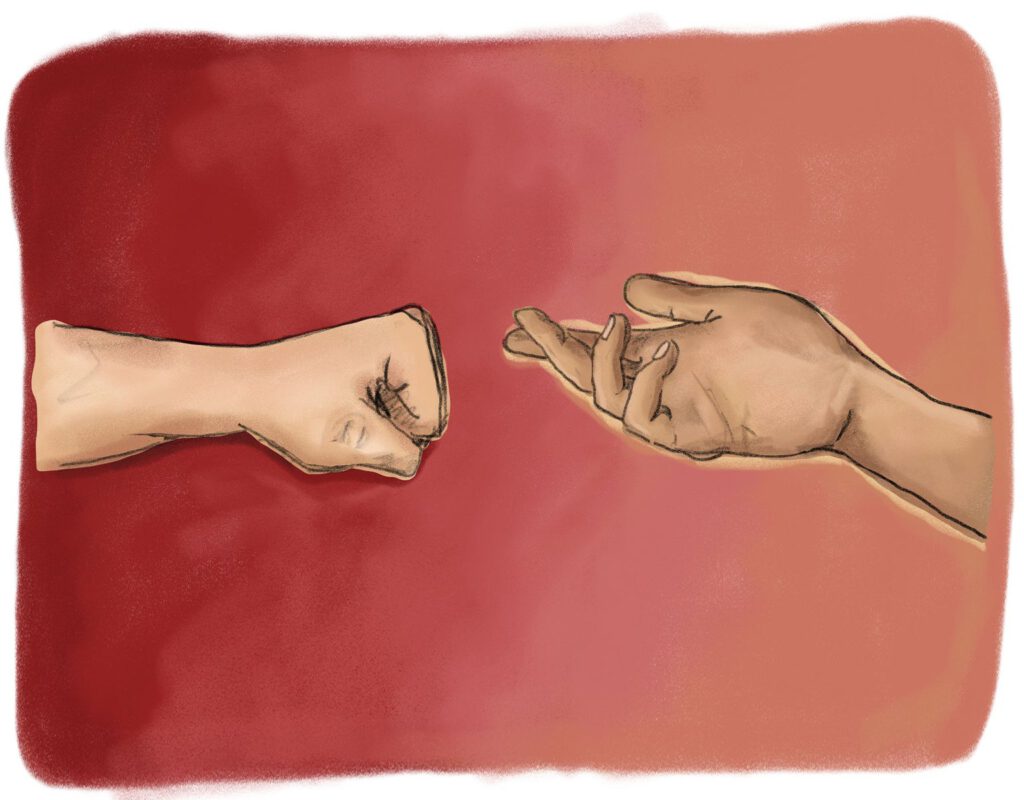The pedagogy implicit in the work of tokhahah, of loving rebuke and dialogue, is deeply needed in the ideological wars and toxic environment of the last few years. I came to this topic in reflecting on my experiences as a Hillel educator and Executive Director mentoring Jewish college students in the middle of a bruising BDS campaign at Cornell.
For one semester my life centered on mediating conflict: conflict between Jewish students and conflict between Jewish students and other identity groups who supported BDS because of their intersectional ties with Palestinians. I observed an underlying dynamic in these conflicts: ideology was deeply connected to one’s moral self and identity. Due to this bundling up of identity and ideology, having a different stance was seen as a rejection of a student’s sense of self, which led to the demonization of the other.
And while my experiences took place on a college campus, they are paradigmatic of conversations happening in the greater culture in America and in the larger world. For instance, conversations and debates about police disarmament quickly devolve into ideological positions: Black Lives Matter vs. Blue Lives Matter.
I believed then, and even more so today, that our tradition can offer an alternative approach through a more robust ethics of disagreement, one in which we move beyond identity politics and into conversation. This form of dialogue can be transformative and perhaps even holy.
I think the practice of tokhahah is a necessary antidote to Twitter wars and the trolling of our politics. And while I think there is a universal application of tokhahah, I’ve fashioned it as a pedagogy initially for Jewish educators in a Hillel setting who are mentoring Jewish young adults involved in the ideological battles that take place on campus.

